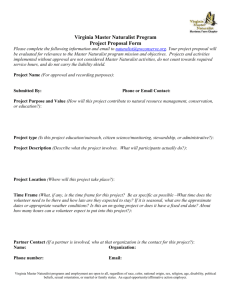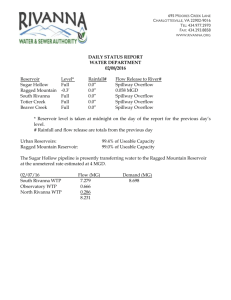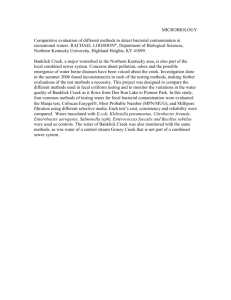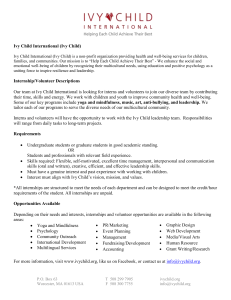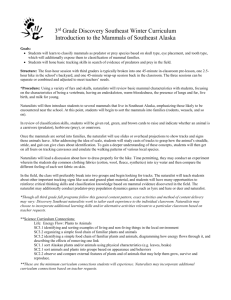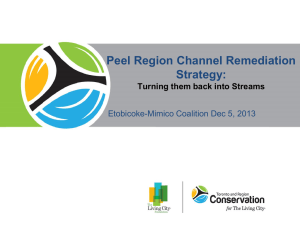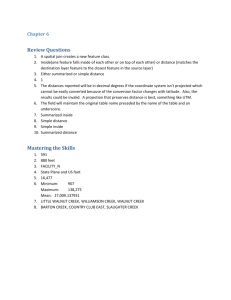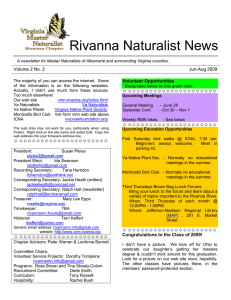Virginia Master Naturalist Program
advertisement
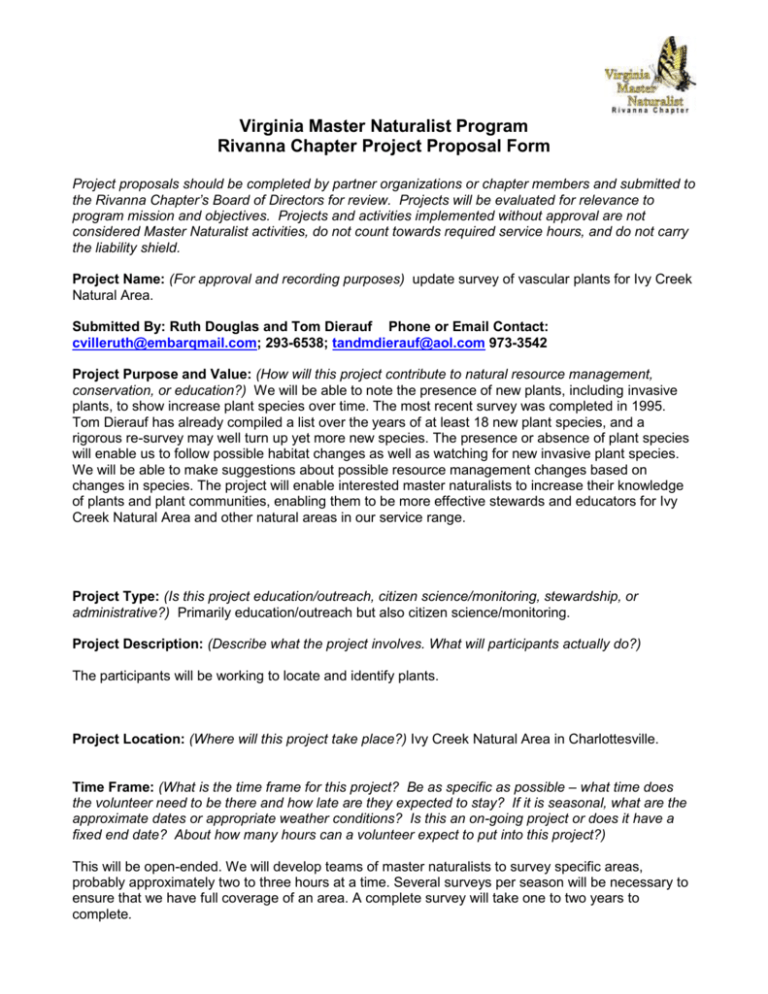
Virginia Master Naturalist Program Rivanna Chapter Project Proposal Form Project proposals should be completed by partner organizations or chapter members and submitted to the Rivanna Chapter’s Board of Directors for review. Projects will be evaluated for relevance to program mission and objectives. Projects and activities implemented without approval are not considered Master Naturalist activities, do not count towards required service hours, and do not carry the liability shield. Project Name: (For approval and recording purposes) update survey of vascular plants for Ivy Creek Natural Area. Submitted By: Ruth Douglas and Tom Dierauf Phone or Email Contact: cvilleruth@embarqmail.com; 293-6538; tandmdierauf@aol.com 973-3542 Project Purpose and Value: (How will this project contribute to natural resource management, conservation, or education?) We will be able to note the presence of new plants, including invasive plants, to show increase plant species over time. The most recent survey was completed in 1995. Tom Dierauf has already compiled a list over the years of at least 18 new plant species, and a rigorous re-survey may well turn up yet more new species. The presence or absence of plant species will enable us to follow possible habitat changes as well as watching for new invasive plant species. We will be able to make suggestions about possible resource management changes based on changes in species. The project will enable interested master naturalists to increase their knowledge of plants and plant communities, enabling them to be more effective stewards and educators for Ivy Creek Natural Area and other natural areas in our service range. Project Type: (Is this project education/outreach, citizen science/monitoring, stewardship, or administrative?) Primarily education/outreach but also citizen science/monitoring. Project Description: (Describe what the project involves. What will participants actually do?) The participants will be working to locate and identify plants. Project Location: (Where will this project take place?) Ivy Creek Natural Area in Charlottesville. Time Frame: (What is the time frame for this project? Be as specific as possible – what time does the volunteer need to be there and how late are they expected to stay? If it is seasonal, what are the approximate dates or appropriate weather conditions? Is this an on-going project or does it have a fixed end date? About how many hours can a volunteer expect to put into this project?) This will be open-ended. We will develop teams of master naturalists to survey specific areas, probably approximately two to three hours at a time. Several surveys per season will be necessary to ensure that we have full coverage of an area. A complete survey will take one to two years to complete. Virginia Master Naturalist programs and employment are open to all, regardless of race, color, national origin, sex, religion, age, disability, political beliefs, sexual orientation, or marital or family status. An equal opportunity/affirmative action employer. Virginia Master Naturalist Program Rivanna Chapter Project Proposal Form Partner Contact: Ivy Creek Foundation; Name: Karen Joyner Phone Number: 973-7772 Organization: Ivy Creek Foundation Email: Karen.joyner@gmail.com Project Chair: (Who from the chapter is the contact person and organizer for this project?) Ruth Douglas What prior experience or expertise is required or preferred? Interest in learning how to identify vascular plants . What training will be provided and by whom? Tom Dierauf and Ruth Douglas will organize the training of Master Naturalists in how to identify and collect plants. Resources Provided: (What equipment or other resources will be provided for the volunteers(s)?) Collecting materials including identification books and plant presses. Field guides and supplies to prepare specimens. There are already several plant presses available, and field guides will be made available. Resources Needed: (What will the volunteer(s) or chapter need to provide and how will these resources be acquired?) please see resources provided Safety Hazards and Protocols: (What hazards might the volunteers encounter and what safety protocols should be followed?) Volunteers should be able to identify poison ivy, anticipate possible bites by invertebrates (insects and spiders primarily), and be able to identify poisonous vertebrates such as snakes. They must be able to walk off trails and up and down inclines, and take careful notes on their observations. Are minors involved? (If yes, then all volunteers must be trained in working with youth and the Above Suspicion policy.) YES NO X How will the project be evaluated during implementation and after completion? It will be evaluated by project leaders on an ongoing basis to ensure that volunteers feel supported. Our goal is to add at least 30 species to the list of vascular plants. How will the Virginia Master Naturalist, Rivanna Chapter be recognized? Acknowledge efforts in revised document, “Vascular Flora of the Ivy Creek Natural Area”. The project will also be recognized in the ICNA bulletin. How will volunteers benefit from participation in the project? Learn how to identify plants and recognize plant communities. For Chapter Board of Directors Only: Project Approved? YES NO Date: Virginia Master Naturalist programs and employment are open to all, regardless of race, color, national origin, sex, religion, age, disability, political beliefs, sexual orientation, or marital or family status. An equal opportunity/affirmative action employer.
